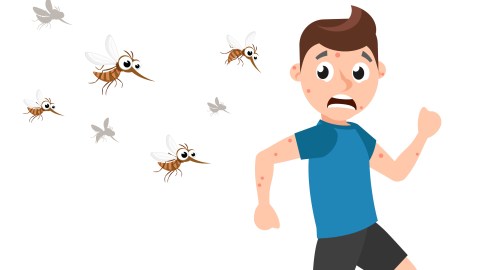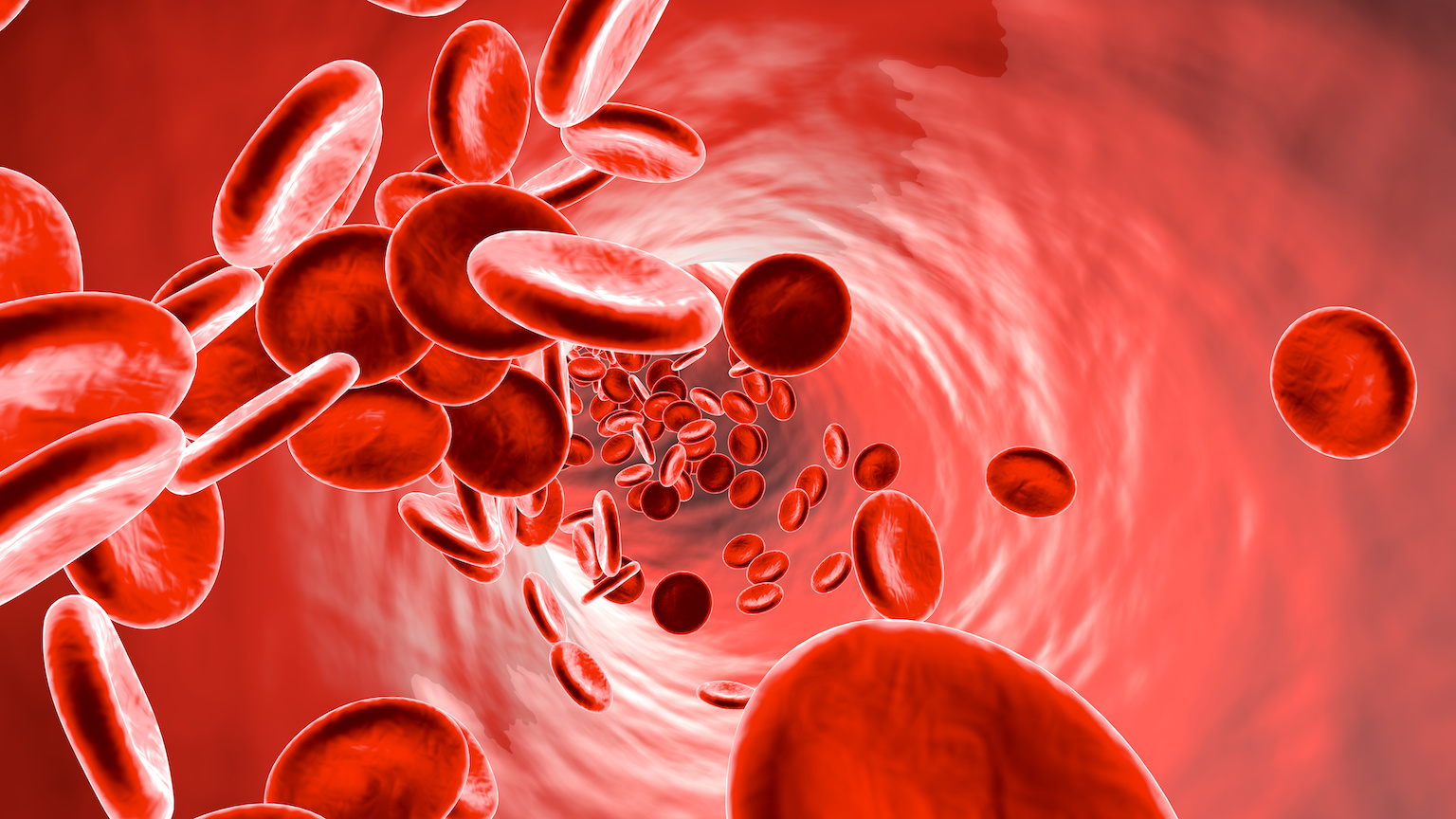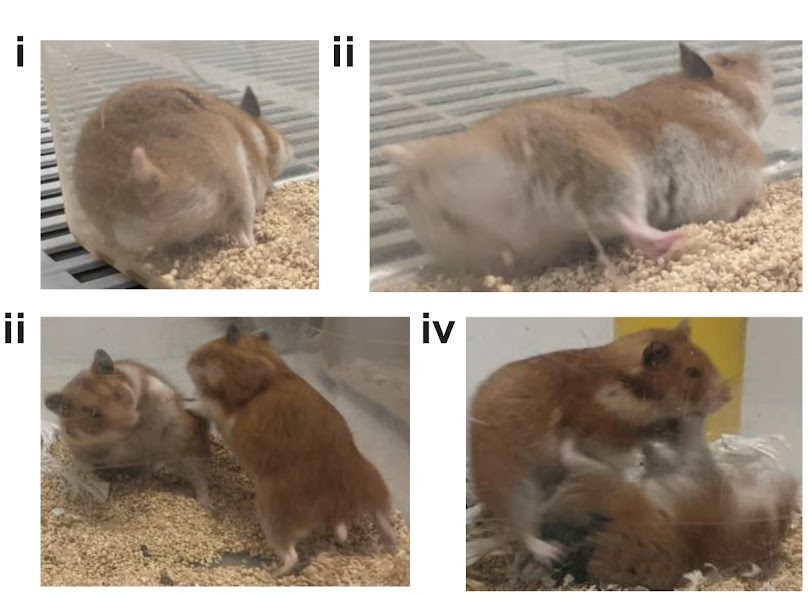Some viruses make people smell delicious to mosquitoes

- Mice infected with the Zika or dengue virus are more attractive to mosquitoes than uninfected mice.
- Infection promotes the growth of certain odor-producing skin bacteria by blocking the expression of proteins that balances the skin’s bacterial community.
- Administration of isotretinoin, a vitamin A derivative used to treat severe cystic acne, helps normalize the infected mice’s odor profile.
The viruses that cause Zika and dengue fever can hijack the body odor of their hosts, making the host more appetizing to hungry mosquitoes, according to a study recently published in Cell. Luckily, the researchers discovered that the changes can be counteracted through the use of certain acne medications.
Odors and diseases go hand-in-hand
For thousands of years, healers have known disease and smell go hand-in-hand. Sometime in the 700s BCE, Sushruta, the father of surgery, wrote that “by the sense of smell we can recognize the peculiar perspiration of many diseases, which has an important bearing on their identification.” For example, people with typhoid can smell of musty bread, and people with diabetes sometimes have a fruity aroma of decomposing apples. Scientists believe that most animals are repulsed by these smells because they indicate that an individual is unhealthy. Over the last decade, however, studies have revealed that some diseases make the individual more attractive to other animals.
In 2005, a group of researchers reported that children harboring the malaria parasite, Plasmodium falciparum, attracted significantly more mosquitoes than uninfected children. The researchers were unable to determine the cause of the difference; however, they speculated that the parasite itself was responsible.
For about a decade, this mystery remained unsolved. During that time, botanists were reporting that plant pathogens can make infected plants smell attractive to insects. For example, the cucumber mosaic virus (CMV), a pathogen that can infect over 1,200 plant species, changes the odor profile of its infected host, making it more attractive to certain insects. When those insects visit the delicious-smelling plant, they pick up some of the virus, which hitches a ride to the next plant that the insect lands on.
Following this discovery in plants, an international team of Kenyan, Swiss, and UK scientists decided to revisit the malaria mystery in 2018, essentially asking, “If plant pathogens can manipulate plant odors, then can animal pathogens manipulate animal odors?” They discovered that the malaria pathogen changes the odor profiles of infected humans, making them more attractive to mosquitoes. This got Gong Cheng, a specialist in virus infection and transmission at Tsinghua University, wondering if Zika and dengue viruses, which also rely on mosquitoes for transmission, changed their host’s odors to attract the mosquitoes’ attention as well.
Mosquitoes prefer infected mice
To test mosquitoes’ preference for odors, Cheng and his team released mosquitoes into a cage between two chambers. One of the chambers was filled with odors from healthy mice, and the other chamber was filled with odors from infected mice (either Zika or dengue). At first, the mosquitoes showed no preference for either of the odors. However, as the viruses replicated, their infected hosts became more alluring. By the fourth day of infection, about 70% of the mosquitoes had been captivated by the odor of infected mice.

Identifying the molecules that attract mosquitoes could help combat any mosquito-borne disease, as well as make summers outdoors a little more enjoyable. So, the researchers set out to ascertain which delicious-smelling molecules the infected mice were secreting. Twenty odorants were altered in the infected mice, compared to uninfected mice, but mosquitoes were only attracted to one, acetophenone. This finding was a bit surprising, considering mammals (mice and humans included) cannot synthesize acetophenone. Microbes residing on the skin, however, can.
Viruses help odor-producing bacteria thrive
To determine if skin microbes were responsible for producing the odor that attracts mosquitoes, the researchers sterilized the skin of infected mice. Acetophenone was eliminated from the infected mice’s odor profile, and mosquitoes were no more attracted to the infected mice than they were to uninfected mice. Altogether, Cheng and his team had revealed that Zika- and dengue-infected mice undergo changes in their skin microbiota which results in a body odor that makes them more attractive to mosquitoes. However, a mystery remained: How were Zika and dengue viruses, which infect animal cells and not bacterial cells, influencing the microbiota?
The immune system regulates the skin microbiota by secreting a carefully concocted cocktail of proteins that slow the growth of certain bacteria. Cheng and his team found that infected mice expressed significantly less RELMα, a protein that balances the skin bacterial community by preventing certain bacteria from overgrowing.
In 2019, a team of researchers at the University of Texas Southwestern Medical Center reported that mice produce more RELMα when fed a diet high in vitamin A. Cheng was curious if a similar diet would rescue the expression of RELMα in the skin of flavivirus-infected animals, thereby suppressing the growth of acetophenone-producing bacteria and, in turn, reducing the mosquitoes’ desire to chase down that host. He and his team fed isotretinoin, a vitamin A derivative used to treat severe cystic acne, to virus-infected mice and found that mosquitoes no longer showed a preference for them.

Overall, this revealed that Zika and dengue viruses can reduce the expression of the protein RELMα, thus favoring the proliferation of acetophenone-producing bacteria over others on the host’s skin. Mosquitoes are then attracted to these hosts. Furthermore, dietary supplementation of a vitamin A derivative to flavivirus-infected elevates RELMα t normal levels, ultimately reducing viral transmission.
In the future, Cheng and his team are setting out to apply their findings in the real world. “We plan to dietarily administer isotretinoin in dengue patients to reduce acetophenone-mediated mosquito activity,” said Cheng.





